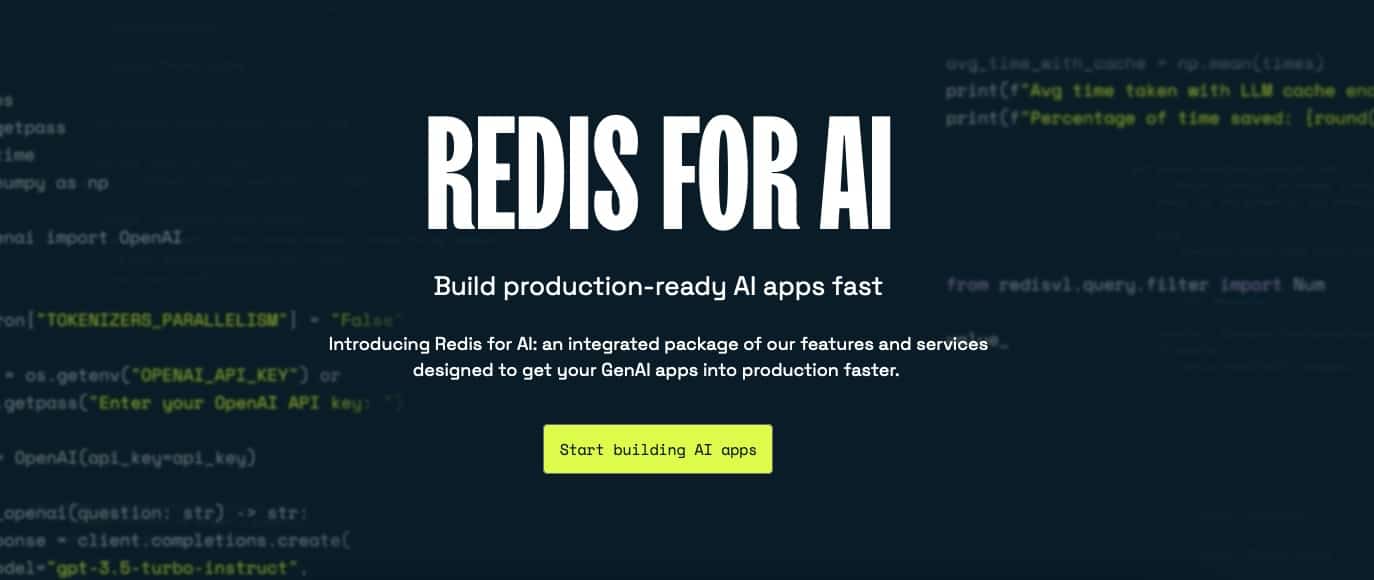Redis, known for its ability to offer fast and scalable performance, has announced a series of new products and capabilities that mark the beginning of a new era for database technology. At a recent event, Redis introduced several key updates aimed at strengthening its position as an essential tool in the development of modern applications, especially in the context of generative artificial intelligence (GenAI).
Redis for AI: Empowering Generative AI Applications
Redis has launched Redis for AI, a comprehensive package designed to facilitate the building and deployment of generative AI applications. This new set of tools offers a range of advanced functionalities, including:
RAG with the world’s fastest vector database: Real-time architecture for GenAI applications.
Semantic cache: Quick retrieval of stored responses, reducing costly calls to large language models (LLMs) by over 30%.
LLM memory: User session customization with all necessary data at the right time.
Agentic memory: Speed improvements for agents to enable more complex reasoning and precise responses.
Feature store: Predictions in less than 1 millisecond for production machine learning models.
This package includes recipes, reference architectures, the new RedisVL 0.3.0 version, and dedicated packages for partners such as langchain-redis and llama-index-vector-stores-redis.
Redis Flex: Cutting Cache Costs by 80%
With the integration of Speedb acquisition, Redis Flex promises to reduce cache costs by up to 80%. Redis Flex allows users to store 5 GB of cache for the same price as 1 GB, thanks to advancements in solid-state drive (SSD) technology. This new approach, utilizing DRAM and SSDs, offers a faster and more cost-effective solution compared to alternatives like ElastiCache and Memorystore.
Redis 8: The Evolution of 15 Years of Work
Redis 8 is the latest version of the popular in-memory database. This version includes all features of Redis Stack and adds new functionalities to enhance development efficiency:
JSON data storage and querying: Quick and dynamic operations.
Improvements in the vector database: Enhanced Redis query engine offers performance 16 times better than other vector database engines.
Optimization of time series data: Fast data collection and analysis with high speed and low latency.
Simplification of probabilistic data: Efficient storage of probabilities to represent underlying phenomena.
Redis Copilot: Virtual Assistant for Developers
To increase developer productivity, Redis has introduced Redis Copilot, a virtual assistant that helps speed up application development. Available within Redis Insight and soon as an extension for Visual Studio Code, Copilot offers functionalities such as:
Quick information retrieval: Get fast answers on query formats and configurations.
Automatic code generation: Create code snippets or commands based on provided instructions.
Data queries: Perform queries in natural language to obtain precise answers.
Redis Data Integration: Simplified Data Integration
Redis Data Integration (RDI), now in private preview on Redis Cloud, simplifies the integration of existing data with Redis through automated data pipelines. RDI provides a single API to synchronize data with Redis, making development easier and more efficient.
In conclusion
Redis continues to innovate with a series of releases that address the current and future needs of rapid and scalable application development. With a renewed focus on generative AI, cache cost reduction, and advanced tools like Redis Copilot and Redis Data Integration, Redis is well positioned to be a key component in building modern applications. The company promises to maintain a pace of frequent releases to ensure that developers benefit from the latest innovations without sacrificing the stability and performance of previous versions.

